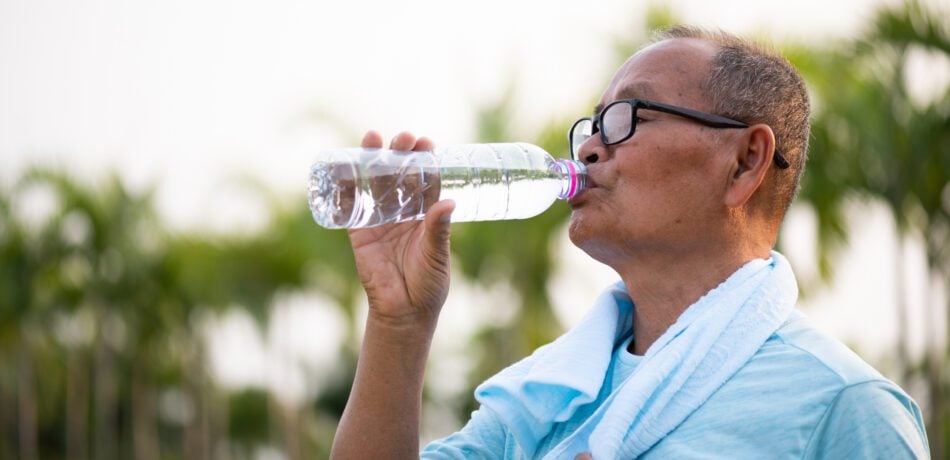Summer is here and so are plenty of opportunities for seniors to get outside and enjoy some fresh air and physical activity. But before heading out to soak up the sun, there are some important things seniors should know about how to stay safe during the summer months.
Seniors Are at Greater Risk of Heat-Related Illnesses and Injuries
Seniors are more susceptible to heat-related illnesses and injuries than younger people, according to the Centers for Disease Control and Prevention. That’s because as people age, their bodies become less efficient at regulating temperature. In addition, seniors are more likely to have a chronic medical condition that changes the normal body response to heat, and they’re more likely to take prescription medications that affect the body’s ability to sweat or control its temperature.
Exposure to abnormal or prolonged amounts of heat can lead to heat-related illnesses like heat cramps, heat exhaustion and heat stroke. Harvard Medicine reports that more than 80% of the estimated 12,000 people in the United States who die of heat-related causes annually are over age 60.
Check out our article, Should You Wear Compression Socks? 7 Benefits to Know.
Guaranteed Acceptance Life Insurance
Coverage options starting at $9.95 a month!
Guaranteed acceptance life insurance without medical exams, health questions, or rate increases.
Summer Safety Tips for Seniors
When the temperature climbs above 80-degrees Fahrenheit, it’s important for seniors to take precautions to avoid falling victim to heat-related illnesses or injuries. These tips can help.
- Morning & Evening Activities: Plan outdoor activities in the morning or the evening to avoid the hottest, sunniest parts of the day.
- Limited Activities: Avoid strenuous activities and take plenty of rest periods in shady areas.
- Air Conditioning: Spend time in air-conditioned buildings, whether at home, the library, the senior center or the mall. Don’t rely on a fan as a main cooling source when it’s very hot. There is help available for seniors who don’t have and can’t afford AC at home.
- Hydration: Be sure to drink more water than usual when it’s hot outside, and don’t wait until feelings of thirst to drink. Also avoid or limit caffeine and alcohol.
Read more: How to Know When Drinking Too Much Water is Dangerous. - Appropriate Clothing: Wear lightweight, loose and light-colored clothing. Look into UPF clothing that provides sun protection, and don’t forget a hat and sunglasses.
- Sunscreen: Protect exposed skin with sunscreen that has a sun protection factor (SPF) of 15 or higher.
- Cool Water Contact: Cool water can help lower your blood and body temperature. Go swimming if possible, or simply take a cool shower or bath. A wet washcloth placed on the back of the neck or mist from a spray bottle can also help cool body temperature.
- Safety Buddies: During extreme heat, check in on friends, family and neighbors.
Know the Signs of Heat Illness
Common symptoms of heat illness include painful muscle cramps, flushed skin, fever, nausea, vomiting, diarrhea, headache, fatigue, weakness, anxiety, faint feeling, rapid heart rate, loss of appetite, confusion and agitation.
When someone is experiencing symptoms of heat illness, move to a cool place, fan skin and hydrate with a sports drink. If symptoms worsen or don’t improve, go to the emergency room or call 911 as heat stroke is a life-threatening medical emergency.
Want more? Check out our blog, 12 Tips to Cope with Heatwaves
Colonial Penn is here for you!
Colonial Penn has specialized in making life insurance simple and accessible by offering it directly to consumers since 1957. Click here to learn more.





